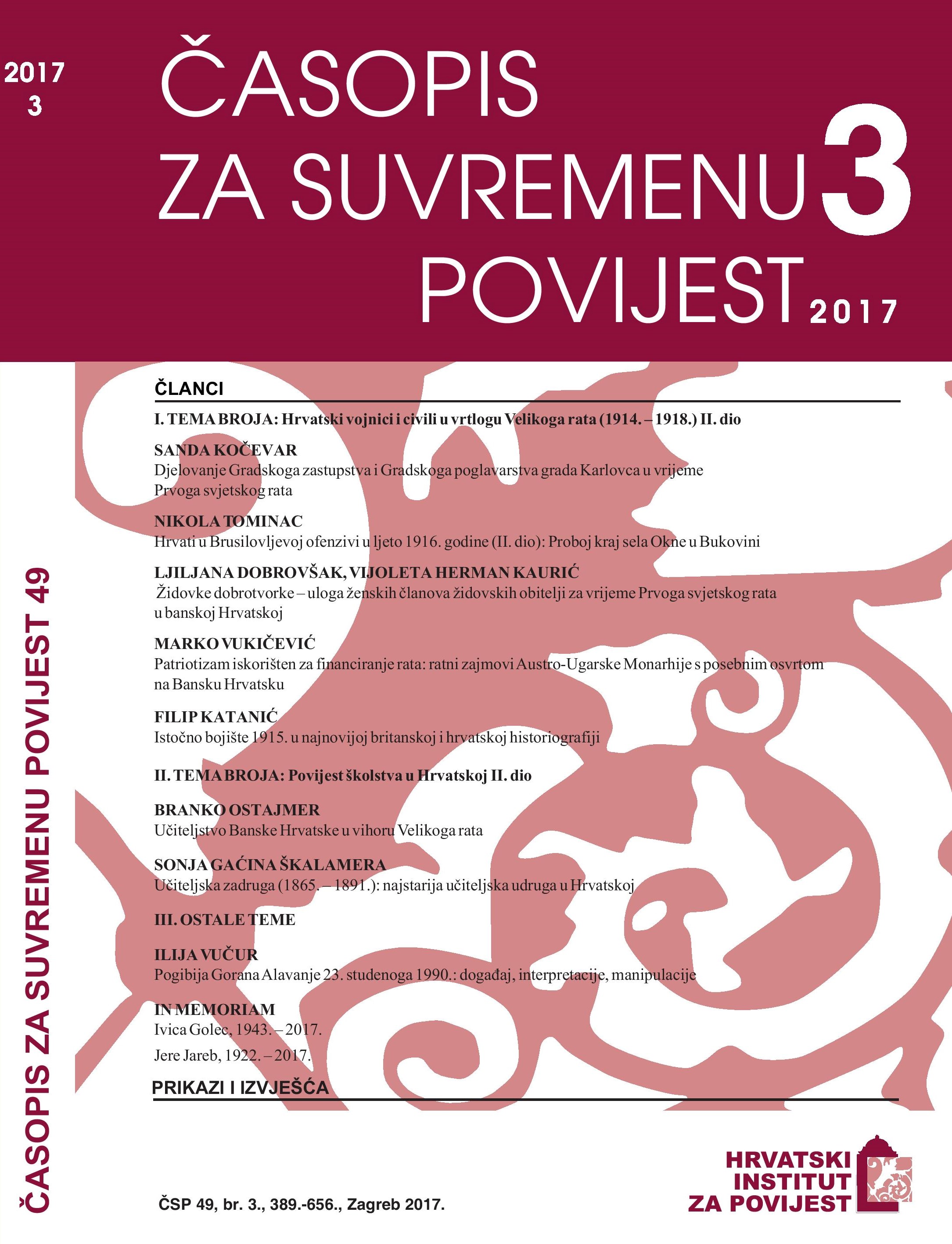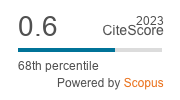The Teachers’ Cooperative (1865 – 1891) The Oldest Teachers’ Association in Croatia
DOI:
https://doi.org/10.22586/csp.v49i3.68Keywords:
Teachers’ Cooperative; history of teachers’ associations; Croatian Teachers’ Home; Croatian Teachers’ Boarding School; CroatiaAbstract
The teachers of the Kingdoms of Croatia and Slavonia began to act in an organised manner by establishing professional associations modelled after similar teachers’ associations abroad. The first and oldest teachers’ association was the Teachers’ Cooperative, established in 1865. Four years later, the Teachers’ Community (later National School) was founded, and an association that is still active today – the Croatian Pedagogical-Literary Assembly – was established in 1871. The Union of Croatian Teachers’ Associations, founded in 1885, brought together and coordinated the work of the regional and city teachers’ societies. Leading teachers’ associations established by the end of the 19th century included the Croatian Savings and Assistance Cooperative and the Croatian Savings, Death Grants, and Assistance Cooperative. According to their goals, manner of operation, and organisation, a part of these associations were professional associations dedicated to protecting teachers’ rights, their professional training, and their active participation in the creation of education policy, while others were humanitarian organisations organised on the principle of solidarity and as credit and savings cooperatives. Most of the archival material regarding the mentioned teachers’ associations is kept in the Archival Collection of the Croatian School Museum.
The first Croatian teachers’ association, the Teachers’ Cooperative, was established at the founding assembly in Zagreb on 10 and 11 June 1865. Its basic purpose was to provide support for raising the orphans of teachers, and to assist their families. The Cooperative used the German Pestalozzi-Verein teacher support associations as a role model. The teachers Ivan Filipović and Vjenceslav Mařik initiated the Cooperative’s establishment. Funds for assisting the children and families of deceased members were raised, in addition to membership fees, through voluntary contributions and the organisation of various events – lotteries, raffles, charity events, etc. The largest donation during the first ten years of the Cooperative’s existence was made by Archbishop Josip Juraj Strossmayer. Half of the collected monetary contributions were used for the necessary disbursements, while the other half were added to the principal, with interest also being used for disbursements. In 1889, the Cooperative invested the principal in the construction of the Croatian Teachers’ Home. The chairmen of the Teachers’ Cooperative were: Ivan Filipović, Ivan Šah, Ferdo Vuksanović, Josip Posavec, Ljudevit Modec, Antun Irgolić, Tomislav Ivkanec, Stjepan Basariček, Đuro Kuten, and Mijo Vrbanec. After 25 years of its existence, in 1891, the decision was made to dissolve the Teachers’ Cooperative, while its funds were transferred to the newly established Teachers’ Association Foundation, aimed towards supporting orphaned teachers’ children and building the Teachers’ Boarding School. The Steering Committee of the Teachers’ Asso-ciation was active during the next two years, and turned its assets over to the Union of Croatian Teachers’ Associations. The Teachers’ Boarding School was built in Zagreb in 1899.
The Teachers’ Cooperative was the first to show the power of organised teacher actions, and its members initiated the founding of other teachers’ associations in Croatia, earning it the nickname The Mother of Teachers’ Associations.
Downloads
Published
How to Cite
Issue
Section
License
Copyright (c) 2017 authors and journal

This work is licensed under a Creative Commons Attribution-NonCommercial 4.0 International License.
Copyright holders are the publisher Croatian Institute of History and the authors. Journal of Contemporary History is an Open Access journal. Users are allowed to read, download, copy, redistribute, print, search and link to material, and alter, transform, or build upon the material, or use them for any other lawful purpose as long as they attribute the source in an appropriate manner according to the Creative Commons licence CC BY-NC. The papers published in Journal of Contemporary History can be deposited and self-archived in the institutional and thematic repositories providing the link to the journal's web pages and HRČAK. Journal does not charge article processing charges (APC). The editors assume no responsibility for statements of fact or opinion made by contributors.




